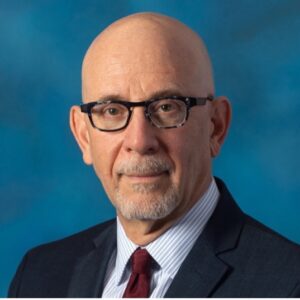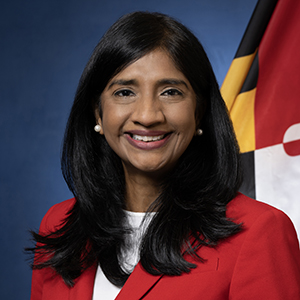November 9-10, 2023 at Johns Hopkins University, Baltimore, MD
Mobile crisis co-response teams at institutions of higher education can take many forms, but generally include a clinical or mental health support staff paired with police or public safety officers. An overarching goal of these teams is to provide real-time, responsive interventions to students and community members in distress. They offer an alternative to police/public safety as sole first responders, as well as augmenting existing mental health support that often occurs by phone.
As the field of mobile crisis co-response expands within college and university settings, there is much to learn from one another. This symposium aims to bring together institutions that have launched teams, and those who are in the planning and exploration stages. A key goal of the symposium is connecting institutions across the country to develop a community of practice that can maintain contact and provide peer support for this emerging best practice in higher education.
who should attend?
The Mobile Crisis Co-Response Symposium aims to bring together stakeholders from all levels including leadership, clinical staff, and public safety/police to share perspectives and lessons learned to support the development of new teams, as well as to contribute to the development of best practices in the field. We encourage campuses to bring a team of up to four stakeholders, including clinical staff, public safety/police, and an administrator. While not all campuses may be able to bring stakeholders to participate in each track, we have found that an interdisciplinary approach is the best way to build or develop a team.
Registration
Johns Hopkins University will host the symposium at our Homewood campus in Baltimore, MD for up to 150 participants. We welcome teams of up to 4 representatives from each campus, and encourage attendance by leadership, public safety/campus police, and mental health clinicians. Registration closes on September 15, 2023. Following this date, we will take requests on a first-come, first served basis to accommodate up to 1 additional attendee per campus team of 4 (max total of 5 attendees per campus). Contact [email protected] for more information.
Please read the instructions carefully. Due to substantial interest in this event, please be sure to update or cancel your registration if you are no longer able to attend so that we can accommodate attendees from the waiting list.
There is no registration fee to participate in the conference; program content and symposium meals (breakfast, lunch, and a hearty appetizer reception on Thursday, November 9, and breakfast on Friday, November 10) will be provided by JHU.
The symposium is an in-person only event; all travel and lodging expenses are the responsibility of attendees.
Symposium Schedule
The full schedule is available here.
In addition to keynote and general sessions where all participants will learn together, the program’s breakout sessions will have three “tracks” designed to provide relevant content to mental health clinicians, public safety/law enforcement, and administration/leadership.
The call for proposals closed on July 5, 2023. Submitters will be notified by email on July 21 about participation in the program.
Accommodations & TRAVEL
Discounted room rates are available at the Inn at the Colonnade, and a shuttle service from the hotel to the symposium locations will be provided.
The symposium is an in-person only event; all travel and lodging expenses are the responsibility of the presenters.
There is no registration fee to participate in the conference; breakfast, lunch, and a hearty appetizer reception on Thursday, November 9, and breakfast on Friday, November 10 will be provided by JHU.
Other hotel options can be found on the Visit Baltimore website.
Featured SPeakers

David A. Harris, Keynote Speaker
Sally Ann Semenko Endowed Chair and Professor of Law at the University of Pittsburgh
David A. Harris is the Sally Ann Semenko Endowed Chair and Professor of Law at the University of Pittsburgh’s law school, where he teaches criminal law, criminal procedure, and evidence. He is also a certified Inside Out Prison Exchange instructor, teaching classes of law students and incarcerated students together at the State Correctional Institution at Greene County, Pennsylvania. He devotes his research to the study of police conduct, search and seizure law, and the intersection of race and criminal justice. He’s one of the leading national authorities on racial profiling; his 2002 book “Profiles in Injustice” and his many scholarly articles on the topic resulted in new laws, and regulations in hundreds of American police departments. His most recent book, “A City Divided: Race, Fear, and the Law in Police Confrontations” (Anthem Press, 2020) uses a case from Pittsburgh to explain the persistence of police-on-civilian violence, especially involving African American men. He is also the creator and host of the Criminal Injustice podcast, which ran from 2016 to 2022.
Professor Harris is committed to using his work to create change outside of the academic setting — nationally, regionally, and locally. He has testified on law enforcement and public safety issues multiple times in the U.S. Congress and in many state legislatures, and he has served on numerous bodies devoted to reforming police, improving police community relations, and finding was to improve the wellness and safety of all people. Professor Harris was recognized this year for his community-based work in Pittsburgh and in other cities around the country with the University Chancellor’s Award for Distinguished Public Service. He was also honored with Excellence in Teaching Award by Pitt Law’s graduating class of 2023.
Session Description
In just the last few years, we have seen a different way of responding to mental health and other related human crises take root: the co-responder model. We saw it first in just a handful of cities, and now the numbers of these services are growing. Closer to home, we see leading universities, represented here, creating their own co-responder services on campuses. But where did all of this activity come from? And why now? Based on his work and research with police and public safety officials across the country for decades, Professor Harris will put the current moment into a longer-term context, showing that the co-responder model has arrived at the right time, with a much better understanding of what people in mental health crisis and their loved ones need—and what they don’t.

Aruna Miller, Keynote Speaker
Lieutenant Governor of the state of Maryland
Aruna Miller is the Lieutenant Governor of the state of Maryland. On Jan. 18, 2023, she was sworn into office as Maryland’s 10th lieutenant governor, the second woman to serve in that role, and the first woman of color and immigrant elected to statewide office in Maryland.
Born in India, Lieutenant Governor Miller and her family immigrated to the United States when she was 7 years old. She earned a Bachelor of Science degree in civil engineering from the Missouri University of Science and Technology. Lieutenant Governor Miller has devoted her life to public service and removing systemic barriers to opportunity.
For 25 years, she worked as a transportation engineer for Montgomery County’s Department of Transportation to improve safety and provide equitable access. From 2010 to 2018, she served the people of Montgomery County (District 15) in the Maryland House of Delegates. As Lieutenant Governor, her policy profile includes matters relating to transportation, mental health, and STEM equity. She serves as chair of the Governor’s Work Zone Safety Work Group, dedicated to making highway work zones safer and protecting the lives of workers, motorists, and law enforcement. The Lieutenant Governor also chairs Maryland’s first Council on Interfaith Outreach, which convenes faith leaders from across religions and across the state of Maryland to bridge divides, increase religious tolerance, end hate, and better serve all communities.